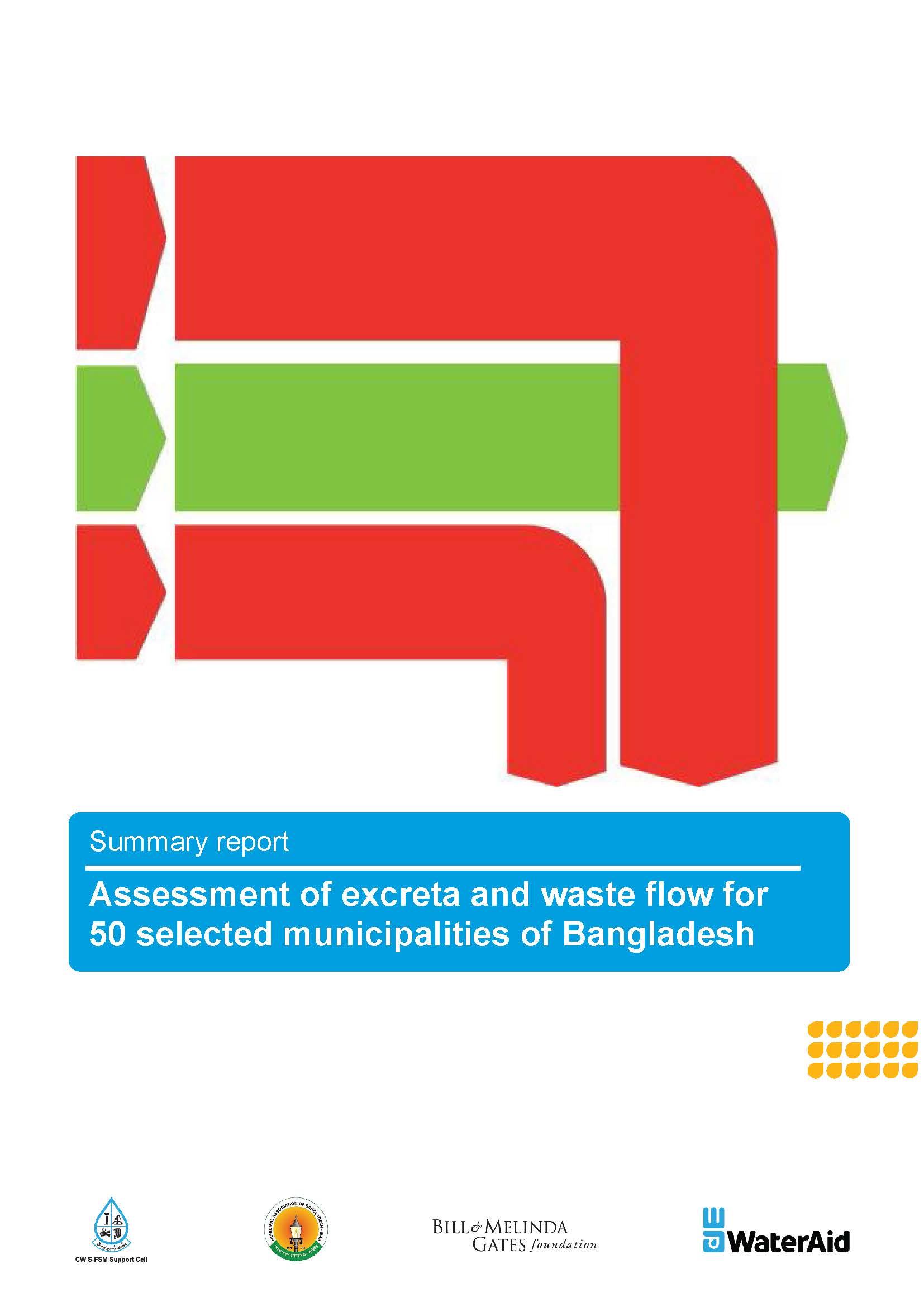Assessment of excreta and waste flow for 50 selected municipalities of Bangladesh

Category(s): Reports
Language: English
Publication Year: 2024
Document Type: PDF
The study uncovers that the average of safely managed sanitation in 50 municipalities is 19%, leaving an alarming 81% as unsafely managed. This situation can be attributed to several factors, including a widespread reliance on manual emptying methods, a general unwillingness to empty containment systems, the absence of Faecal Sludge Treatment Plants (FSTP), and inadequate transportation facilities for waste removal. In the context of waste management, the average of unmanaged waste is 80%, with 18% being retained at disposal sites and only 2% undergoing any form of sorting for recovery, across the 50 municipality.
The lack of formal sorting facilities at dumping sites, open exposure of dumping sites to the environment, absence of waste segregation at the household level, and the lack of initiatives for waste-to-energy conversion are key factors contributing to these statistics.
The study underscores the urgent need for comprehensive interventions in the 50 surveyed municipalities of Bangladesh, highlighting significant challenges in both sanitation and waste management.
Copyright
This is an open access work distributed under the terms of the Creative Commons Attribution License, which permits unrestricted use, distribution, and reproduction in any medium, provided the original work is properly cited.
No comment yet.